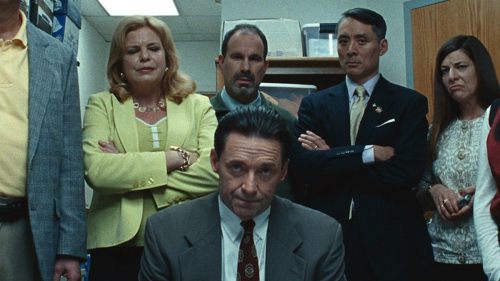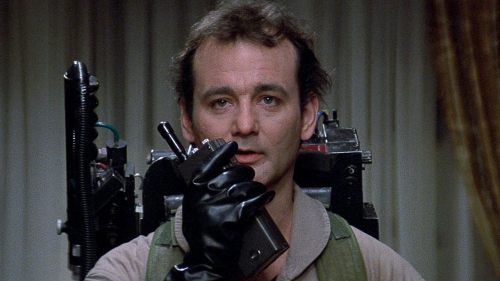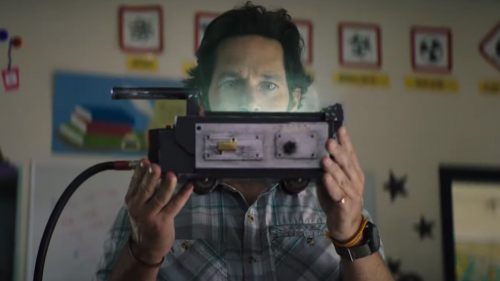THE FRONT RUNNER Review: Strong Convictions, Weak Platform
There’s a certain futility in looking to past election cycles to glean insight on the modern state of things. It's not that there isn’t anything to learn from the decades of mistakes that brought us to the brink of democratic collapse, but simply that there aren’t really any elections that bear sufficient similarities to that which produced President Donald Trump. And just to be clear, The Front Runner is not a direct commentary on the Trump presidency or even necessarily an examination of the mechanisms that brought him to power, but in telling a story about a turning point in the celebritization of politics, it is attempting to make points about the relationship between the news media and political campaigns. And yet, as prescient as such a point should be in an era where celebrity is the sole qualification of the single most powerful man in the country, The Front Runner can’t quite seem to find the footing to say anything consistently insightful for modernity, as much as it might try to mine the past for problems in need of solving.
Following the 1988 campaign of Democratic candidate Gary Hart (Hugh Jackman), The Front Runner examines why exactly a campaign once thought to be an unstoppable force ultimately fell apart in a mere span of three weeks. Jackman’s portrayal of Hart is purposely distant and enigmatic, a portrait of a private man who paradoxically wants to hold the most powerful – and consequently the most public – position in the U.S. government. When journalists start asking him questions about the sanctity of his marriage, Hart becomes defensive and cagey, claiming that his personal life has no bearing on his policy arguments. However, as journalists begin poking around outside Hart’s townhome, it becomes clear that he may not be as faithful to his wife as he claims - a notion that spirals out of control, as his and his family’s private lives overshadow the political thrust of his campaign.
What director Jason Reitman is very skilled at showing is a dark impulse by journalists to latch on to scandalous and salacious stories for the sake of attracting viewership and readership, regardless of the harm they cause to the players in those stories. The Front Runner portrays many journalists, particularly those who work in front of cameras, as obsessed with appearance and objectively focused to a fault, and this calls attention to the ethical gap between journalists' social purpose and the reality of journalistic careers. If Reitman and the film’s screenwriters had sat on one side of the divide, examining the Fourth Estate’s collapse into competitions for tabloid scoops, this could have been a powerful piece of cultural criticism.
Alas, this isn’t the tactic Reitman takes, instead taking on too broad a scope so as to encapsulate Hart’s character flaws and the questionable tactics of his campaign staff. This has the effect of removing any sort of ideological center from the film, turning almost every scene into a tug-of-war where characters debate the merits of how far gone they are from ethical purity. Journalistic truth-seeking is important, but there are limits. Public figures deserve a measure of privacy, but there are limits. Personal ethics matter as a reflection of public policy, but there are limits. The problem is that the film never quite finds what those limits are, and because it doesn’t settle on just one or even a few of these issues, it collapses under the weight of its own ambition, painting every player as compromised without any idea of what to say beyond that.
The Front Runner feels like it wants to impose a series of unanswerable conundrums for its audience to meditate upon, but instead it leaves us with a cynical take on human nature’s tendency to self-destruct cultural norms for the sake of personal ambitions, and it doesn’t quite know what to do with that conclusion. There’s no message of hope, no condemnation of any or all parties, no emotional culmination of everything presented. There’s just a void of nihilism, and while that might be preferable to the problematic aspects of Reitman’s other 2018 film, it still leaves one wanting for a film that might have been, much as we might be left wanting for a world where Gary Hart and certain other candidates had become president.



